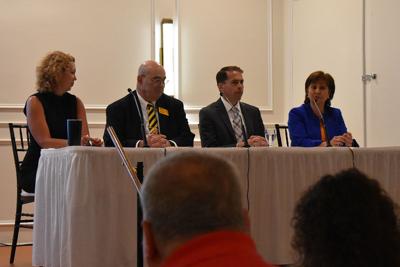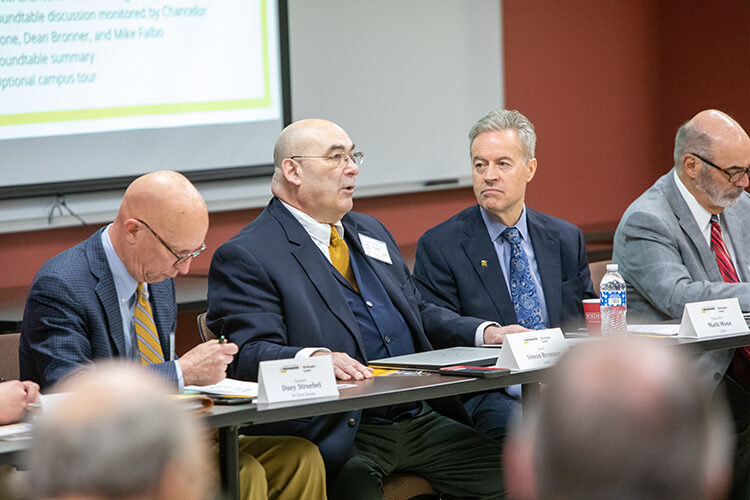I am serving as moderator for a special event free and open to the public on April 10, 2025, at the Lunt-Fontanne Theatre on the campus of UWM at Waukesha. Come join us! Free parking too.
Moderator: Dr. Simon J. Bronner

Location: Lunt-Fontanne Theatre on the UWM at Waukesha campus, 1500 N. University Dr., Waukesha, WI
Sponsored by the Tommy G. Thompson Center on Public Leadership and hosted by UWM at Waukesha. Free and open to the public, registration required. Register Here.
Featured Speaker Bios:
ARNE DUNCANManaging Partner, Emerson Collective
Arne Duncan served as U.S. Secretary of Education from January 2009 through January 2016 as part of the Obama Administration. Prior to joining the Obama Administration, Duncan served as chief executive officer of Chicago Public Schools. From 2001 to 2008, Duncan won praise for uniting the city’s stakeholders behind an education agenda that included opening 100 new schools; expanding after-school, summer learning, early childhood, and college access programs; dramatically boosting the caliber of teachers; and building public-private partnerships around a variety of education initiatives.
He currently leads Chicago CRED, a nonprofit trying to achieve a transformative reduction in gun violence in Chicago. Through partnerships with local business leaders, community organizers, and nonprofit groups, Duncan aims to provide outreach, therapeutic, education, and employment opportunities for the young men most likely to be engaged in gun violence. He is also the managing partner at Emerson Collective, an organization dedicated to removing barriers so people can live to their full potential. Secretary Duncan graduated magna cum laude from Harvard University in 1987, majoring in sociology. At Harvard he served as co-captain of the basketball team and was named a first team Academic All-American.
MARGARET SPELLINGS
President & CEO, Bipartisan Policy Center
Margaret Spellings serves as President and CEO of the Bipartisan Policy Center, bringing her knowledge and experience developed over an exceptional career in public service at both the state and national level.
Spellings most recently served as President and CEO of Texas 2036, a data-driven, bipartisan think tank addressing the most pressing issues facing Texans.
Prior to that, Spellings served as the president of the 17-institution University of North Carolina System, leading the state’s public university into a new period of performance, affordability, and growth with a focus on improving economic mobility, ensuring accountability, and advancing the public good.
Spellings also served as president of the George W. Bush Presidential Center in Dallas, Texas, where she oversaw programs on economic opportunity, education reform, global health, and special initiatives on women’s leadership and military service. Her work included the 2014 launch of the Presidential Leadership Scholars program, a one-of-a-kind leadership program born out of the first-ever partnership of multiple Presidential Centers.
From 2005 to 2009, Spellings served as U.S. Secretary of Education, leading the implementation of the No Child Left Behind Act, a bipartisan initiative to provide greater accountability for the education of 50 million U.S. public school students. As secretary, she also launched the Commission on the Future of Higher Education, a plan to address challenges of access, affordability, quality, and accountability in our nation’s colleges and universities. Prior to serving as Secretary, Spellings served as White House domestic policy advisor from 2001 to 2005. Her achievements include oversight of the development of the U.S. President’s Emergency Plan for AIDS Relief (PEPFAR), the development of a comprehensive immigration plan to ensure long-term economic stability and to secure U.S. borders, and numerous other initiatives on health and human services, transportation, labor, justice and housing.





